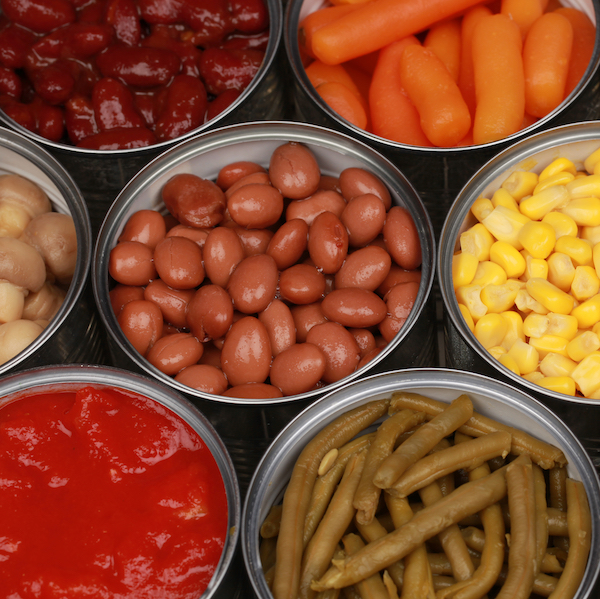
Risks of canned beans
While the presence of toxic substances like BPA (bisphenol A) is the main point of concern when it comes to canned foods, high sodium content is another risk. According to Barton, one of the worst for sodium content is canned beans and legumes. "I suggest you buy beans and legumes dry, soak them, and then cook them. It’s more work but this way you get 0 grams of sodium," she says.
While people with high blood pressure should be mindful of their sodium intake, a high sodium diet in general could put you at risk of things like diabetes. "A high sodium diet can make you very thirsty and many people drink sodas, pops, alcohol and juices to quench their thirst, which will add a lot of sugar on top of the sodium and can promote diabetes," Barton warns. It's no secret that consuming too much sugar can result in a range of health issues, including weight gain.
However, it is possible to reduce the salt content of canned beans. Berger offers advice :"Draining and rinsing canned beans reduces sodium by as much as 40%," she says. "This works well for beans such as garbanzo, kidney, black, or white beans. On the other hand, the rinsing method does not quite work with beans in sauces such as barbecue baked beans or pork and beans. If you are looking for the flavor beans in a sauce provides, try mixing in a can of rinsed bean to dilute the sodium content." Got it!
All in all, limiting your intake of sodium as much as possible by steering away from foods like canned beans (or rinsing them) is one key to a healthier life.
Other issues with canned foods
In addition to all that salt, there are several other risks associated with canned foods. The main concern with canned foods is the presence of preservatives. One in particular is BPA, a chemical that is used to make plastic containers and aluminum cans. BPA has been linked to cellular dysfunction, which can cause premature aging, inflammation, and cancer.
According to Barton, different canned foods put you at more risk of BPA exposure than others. "Acidic foods like tomatoes and sauce can bring these toxins out and leak into the foods," Barton says. "They most typically hide in the line of the can." To reduce your risk of exposure to BPA, Barton recommends buying tomatoes fresh and sauces that come in jars as a healthier alternative. This is especially good advice when you consider that canned tomatoes are also frequently loaded with added sugars.
On top of the exposure to unwanted substances and high sodium, most canned foods lose their nutritional integrity due to the processing they go through. The high temperatures the food is exposed to damages vitamins essential to your wellbeing, especially vitamins B and C. "Almost all vitamins included in the fresh version of foods are reduced or absent when they’re canned." Barton says. This is why she recommends buying foods fresh when you can, and buy sauces that come in glass jars. Although it may take extra time to prepare them, the investment is worth it. Your body will thank you in the long run!
READ MORE: The One High-Sodium Meat Nutritionists Want You To Stop Putting In Your Sandwiches


